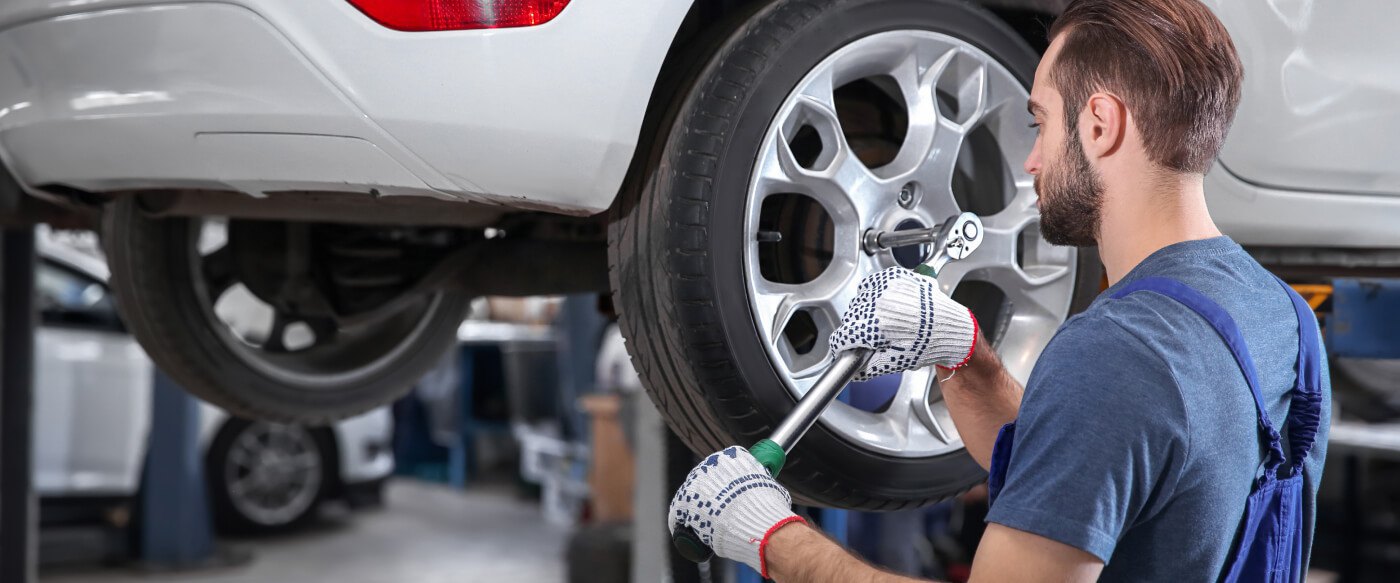Enhance Your Drive: Top-Notch GMC Tires Service at Morris Tires
Wiki Article
Tire Service: The Impact of Climate Condition
When it concerns ensuring ideal performance and safety and security when driving, recognizing the impact of climate condition on tire solution is critical. From scorching heat to icy roads, each weather component can considerably affect tire capability and general driving experience. By diving right into the results of varying weather conditions on tires, vehicle drivers can get valuable understandings that may boost their vehicle's efficiency and long life. In this discussion, we will check out the intricate connection between climate conditions and tire service, dropping light on the importance of weather-specific tire maintenance techniques and considerations.Warm and Tire Efficiency
When revealed to high temperatures, tires experience changes in performance that can dramatically affect lorry safety and handling. The warm produced from extended driving or hot weather condition conditions creates the tire rubber to soften, resulting in minimized step life and boosted wear. As the rubber ends up being softer, the tire's grasp on the road decreases, impacting braking distances and general grip. In severe situations, extreme warm can also cause tire blowouts, positioning an extreme safety threat to the automobile and its occupants.
Cold Weather Effects
Cold climate problems can have a considerable influence on tire performance and safety and security. As temperature levels decrease, tire rubber can harden, leading to decreased traction on icy or snow-covered roads. In winter, tires may additionally lose atmospheric pressure extra swiftly, which can affect handling and gas efficiency. Furthermore, chilly temperature levels can create tire sidewalls to tense, raising the threat of damage from gaps or other road threats.To mitigate the effects of chilly climate on tires, it is critical to regularly examine tire pressure and inflate them to the producer's suggested degrees. Making use of wintertime or all-season tires made for chilly weather problems can likewise enhance grip and hold on icy or snowy roads. Appropriate tire upkeep, consisting of regular assessments for wear and damages, becomes a lot more crucial during chillier months to make certain optimal performance and security.
Rainy Conditions Impact
Tires with worn-out treads are more vulnerable to hydroplaning, where a layer of water builds up between the roadway and the tire surface area, leading to loss of traction. To combat this, motorists ought to routinely check their tires for adequate walk deepness and think about investing in tires specifically developed for damp conditions.In addition, rainy climate can likewise reduce exposure, making it testing for chauffeurs to see the road ahead clearly (GMC Tire Service). In such problems, it is vital to change driving rates accordingly and maintain a secure complying with distance to enable unexpected quits. Appropriately inflated tires can additionally help in maintaining control on damp roadways by supplying much better handling and grip
Snow and Tire Safety
When driving in snowy conditions, having the best tires can make a significant difference in safety and security and efficiency. Winter tires are made with special directory rubber compounds and step patterns to offer better traction on snow and ice contrasted to all-season tires.
Furthermore, drivers should think about installing tire chains in severe snowy problems. Tire chains provide extra grip by gripping the snow and ice, boosting stability and control. It is crucial to adhere to manufacturer directions when setting up and using tire chains to avoid damages to the tires and automobile (GMC Tire Service). By selecting the best tires, preserving proper inflation, and thinking about additional grip aids like tire chains, chauffeurs can improve their safety when navigating snow-covered roadways.
Weather-Related Tire Maintenance
When confronted with various climate conditions, correct tire maintenance comes to be a crucial element of car safety and security and performance. Weather-related tire upkeep includes a variety of methods targeted at guaranteeing optimal tire function and durability in different weather circumstances. One vital facet of weather-related tire maintenance is tire stress regulation. Fluctuating temperature levels can trigger tire stress to differ, influencing grip and gas efficiency. Frequently readjusting and inspecting tire pressure according to producer referrals is necessary for safe driving in altering climate condition. Furthermore, tire walk deepness plays a considerable role in managing different weather condition aspects. Tires with sufficient walk deepness provide better grip on damp or icy roadways, reducing the risk of skidding or hydroplaning. Evaluating tire tread on a regular basis and replacing tires when step wear reaches a specific depth is vital for keeping grip and security in damaging weather condition. By focusing on weather-related tire maintenance, chauffeurs can Discover More enhance safety, improve lorry efficiency, and extend the life expectancy of their tires.
Verdict
In conclusion, weather have a considerable impact on tire efficiency and safety. From warm affecting tire stress and use to cold weather condition lowering traction, it is important to think about the climate when keeping and making use of tires. Wet conditions can lower grip and lead to hydroplaning, while snow can increase the risk of mishaps if tires are not properly outfitted. Weather-related tire maintenance is important in guaranteeing ideal efficiency and safety on the roadways.In this conversation, we will certainly discover the intricate connection in between weather condition problems and tire solution, shedding light on the importance of weather-specific tire maintenance techniques and considerations.

Report this wiki page